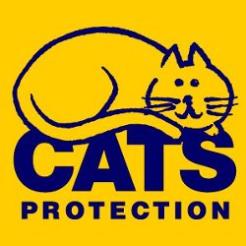Animal charity Cats Protection has spoken out over claims that it is putting money before animal welfare after being criticised for increasing senior staff salaries while slashing spending on frontline services.
Mary Millar is one of a group of ex-Cats Protection volunteers who believes that the charity has been making decisions that are harmful to the cats it sets out to look after. However, Cats Protection has said that the claims made by Millar in a Mail on Sunday article and on her own charity’s website are misleading and, in some cases, inaccurate.
Following the article the charity has released several statements denying the accusations and condemning those who have criticised them. It said: “Unfortunately the article was prompted by two or three disgruntled ex-volunteers and we feel sad that they want to damage the reputation of the marvellous work of the huge numbers of wonderful people involved in our charity.
“Their action only serves to harm Cats Protection’s potential to help cats in the future so in the end it is cat welfare that suffers.”
In 2012, it was reported that Cats Protection was to make 80 of its staff redundant, blaming this on only very limited growth in key income streams.
Website highlights criticisms
Mary Millar made several criticisms of the charity on a website for her newly-formed volunteering organisation for cats – Inverclyde Feral Cats, which was formed following the closure of the Inverclyde branch of Cats Protection.
Cats Protection has been criticised for increasing its spending on staff to more than £12m a year, with the chief executive earning over £100,000, even though it is run by over 8,500 volunteers. Cost-cutting redundancies have also been condemned for excluding more senior level positions.
Commenting on the redundancies, a Cats Protection spokesperson said:
“It was not feasible to make cuts in staff at executive management level as each of these roles is responsible for a number of departments - all of which are vital to the charity’s work. However, manager level roles were made redundant and these equated to 12 per cent of the cuts made.”
The charity acknowledged that costs went up from £11.2m in 2011 to £12.03m in 2012 and that this increase was made up almost entirely of redundancy payments.
Putting down cats
Cats Protection has also been accused of unnecessarily putting cats to sleep and Inverclyde Feral Cats has suggested that the charity’s argument of never putting a “healthy cat to sleep” raises the question of what is meant by the term “healthy”. However, Cats Protection has disputed such criticisms.
A spokesperson for the charity said: “Euthanasia of Cats Protection (CP) cats is only carried out on the recommendation of, and by, a qualified vet after they have assessed the cat’s illness or injury, and assessed the individual cat’s prognosis and prospects in terms of future quality of life.”
A further criticism levelled towards the charity is that it does not carry out so many home visits, which is another cost-saving measure.
Cats Protection said it made the decision to change its home matching process to include a number of different ways of matching the right cat to the right home. This includes using questionnaires and technology such as Google maps to assess a home’s suitability. A spokesperson said that home visits are still carried out when deemed necessary, and that this is a method used by other charities including Blue Cross and Battersea Dogs and Cats Home.
When questioned as to why it believed volunteers such as Millar felt the need to go the press with their criticisms, especially as the charity claims that most are untrue, a spokesperson from Cats Protection told civilsoicety.co.uk:
“As a charity with over 8,500 volunteers and around 400 staff there will, sometimes, be those who disagree with policies or decisions and who become disaffected with the charity. This is sometimes unavoidable and certainly not unique to Cats Protection.
“The facts of these matters are rarely straightforward and there is usually more than one point of view involved. This is why we have a council to listen to different views and advise trustees. Both the board of trustees and council are made up of volunteers so they are the representatives of the volunteers.
“Many of the charity’s dedicated volunteers and staff were very upset at the allegations made and got in touch to pledge their support straight after the article was published. As their views were not reflected, we feel that the article itself was misleading.”
'Volunteers should stick together'
Many people took to social media to criticise those volunteers who had spoken out about the charity and offer their support.
Charlotte Natalie Bridge wrote on Cats Protection’s Facebook page: “Cats Protection you do a great job, I have volunteered with you plenty of times and have seen the actual hard work you do for the cats' welfare in care, this is the one thing at the end of the day you care about and that is their wellbeing.”
In response, Millar told civilsociety.co.uk: “It is a sad state of affairs when a news article results in personal verbal attacks on individuals who dared to speak out. Especially when they have come from certain branch of co-ordinators and volunteers."
She emphasised the importance of volunteers sticking together, stating that it shouldn’t be about condemning individuals but about an organisation that has lost sight of what it is all about.
She said: “This could have been an opportunity for the volunteers and volunteer-run branches to instigate change – to be heard, to make a difference and to demand more assistance to frontline services. Whether this will happen or not, remains to be seen.”









